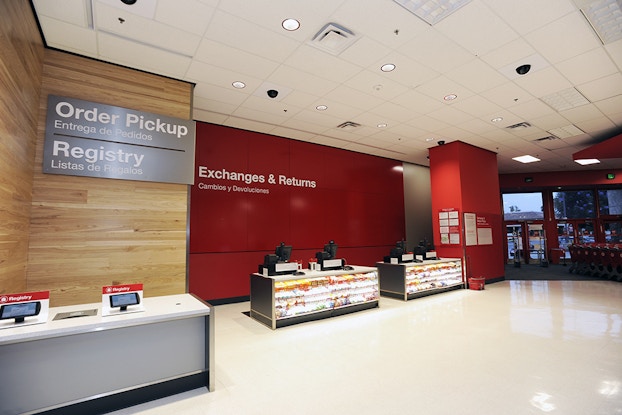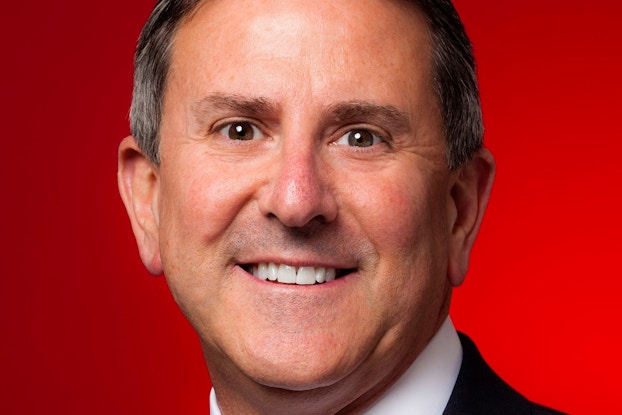
Brian Cornell, chairman and CEO of Target Corp., had a tough job before this year, steering a 1,900-store chain through a changing retail landscape. Starting in March, it became much more challenging.
Target, along with the rest of the retail industry, is now “dealing with the pandemic, civil unrest in the country, the economic downturn, and we’re working remotely, so the bar is really high,” Cornell said during a National Retail Federation virtual conversation attended by CO—.
Long-range planning at Target used to mean thinking three-to-five years in advance. Now, Cornell said, that horizon has shrunk to four weeks, with adjustments needed daily.
The NRF has been hosting virtual conversations since the pandemic began. NRF President and CEO Matt Shay said the Federation invited Cornell not only to discuss the pandemic, “but also, closer to home, the terrible events surrounding the killing of George Floyd right in their hometown, and how Target is helping communities respond and heal and move forward.”
Target is headquartered in Minneapolis, the city where the killing of George Floyd by a police officer sparked protests across the country.
A Target store near the scene of the killing was looted, and 175 Target stores were closed around the country due to protests.
Long-range planning at Target used to mean thinking three-to-five years in advance. Now, Cornell said, that horizon has shrunk to four weeks, with adjustments needed daily.
Community involvement
Target is becoming a driving force for change in response to the recent protests and the COVID-19 pandemic. If you're looking for ways your business can get involved in your own community, read more here.
‘We have to drive change’
Cornell said that when he saw the video of George Floyd’s murder for the first time, his immediate reaction was, “That could have been one of Target’s team members.”
He organized Zoom calls with Target’s African American team leaders and with the company’s African American business council. One call drew over 7,000 participants, he said.
“It was a chance to listen to their stories,” Cornell said. He heard about regional supervisors pulled over by police as they visited Target stores; managers stopped while driving with their families; employees followed by police while jogging. “Why? Because they were Black. The stories weren’t new, but for all of us, we said, ‘It’s enough. We have to drive change,’” Cornell said.
The company donated $10 million to the National Urban League, the African American Leadership Forum and other organizations. It is donating 10,000 hours of consulting work to help small businesses, and it has committed to reopening the downtown Minneapolis stores damaged during the protests.
Target also established an internal task force on racial equality. “We don’t have all the answers but we felt it was really important to make sure our position is clear – that we will not tolerate racism and we were going to stand next to Black families as we look to make bold changes across the country,” Cornell said.

Target benefits from digital investments during pandemic, signaling permanent shifts in retail
When the pandemic hit, Target was well-positioned to take advantage of investments it made previously in e-commerce technology and store-based fulfillment of online orders. During the first quarter, online sales grew by 141% and same-day store pickup, curbside and delivery surged by nearly 300%.
During the quarter, Target saw five million shoppers use Target.com for the first time, and it had two million first-time curbside pickup customers. Cornell expects those shifts in shopping behavior to persist post-pandemic. “We’re going to see a consumer who continues to enjoy stores, but who also knows that they have these convenient options, particularly same-day options,” he said.
He also predicts safety and trust will be top concerns of American consumers going forward. “We used to talk about how one of our goals was to become America’s easiest place to shop. I’ve now challenged our team to say, ‘How do we become the safest place to shop?’” he said.
Cornell said he is optimistic about the future of retail, despite the economic shocks of the pandemic. “We are seeing a separation between winners and losers” in the retail industry, he said. Those retailers “who are combining great stores and a great store experience and exciting product and great service with the convenience that digital offers [will be the winners],” Cornell predicted.
CO— aims to bring you inspiration from leading respected experts. However, before making any business decision, you should consult a professional who can advise you based on your individual situation.
Want to read more? Be sure to follow us on LinkedIn!
CO—is committed to helping you start, run and grow your small business. Learn more about the benefits of small business membership in the U.S. Chamber of Commerce, here.








